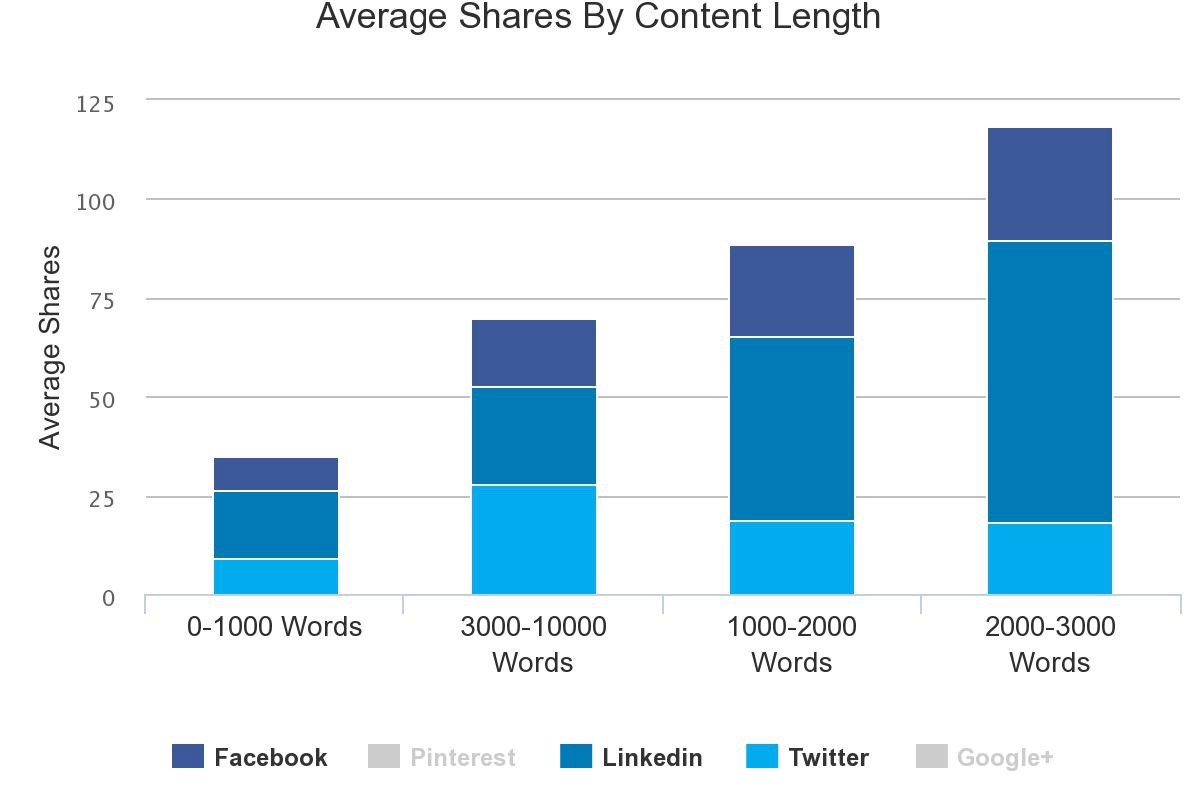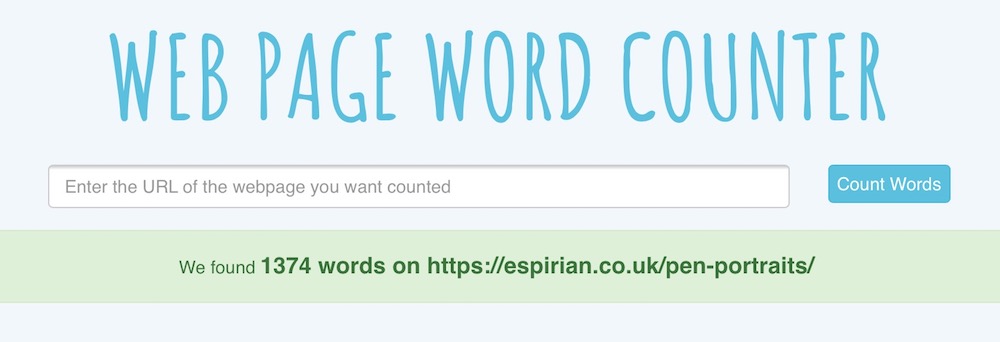📚 This post is part of my business blogging guide.
How many words do you need to write in your blog posts?
Here’s what I’ve found based on my experience of blogging regularly since 2015.
- Long blogs tend to perform better than short ones
- My most popular posts
- Is there one right blog length for everyone?
- Should I make my short blogs longer?
- How do I check the length of a blog post?
- How to find the best length for blog posts on your site
- Let’s wrap up
Long blogs tend to perform better than short ones.
Evidence from respected sources such as BuzzSumo, OkDork and Mark Schaefer suggests that longer content outperforms shorter content.
Analysis of 1343 B2B blogging articles 2017–2018:
✅ Long posts (3000+ words) get the most engagement
✅ Twitter users are most likely to tweet articles that are 1000–2000 words
✅ Reddit users don't engage with content shorter than 2000 words#blogging via @buzzsumo pic.twitter.com/ODOKe6aVnY— John Espirian (@espirian) June 26, 2018
This is quite a blow to those who claim that attention spans are getting shorter.
The truth is that people are just quicker at spotting poor content. When they find something good and interesting and relevant, they’ll stick around.
If I hear one more speaker refer to "8-second attention span" I'm going to leap on the stage and have a fit. This statistic is a myth. It has been repeated over and over and it is untrue. People do not have short attention spans. Brands have short interesting spans. #incitesummit
— Mark Schaefer (@markwschaefer) October 24, 2018
My most popular posts.
In 2017, I analysed 50 posts and found that articles that are 2000–3000 words long outperform everything else, and are shared 3 times more than my shortest pieces.
Here are my stats for shares on social media, which is a good indicator of the popularity and value of the content.

I also looked at my top 10 performing blog posts in 2019. This shows that the average word count for these most popular posts is 2272 words.
| Word count | Article link |
|---|---|
| 1488 | /linkedin-links/ |
| 3735 | /pen-portraits-real-examples/ |
| 2711 | /blog-image-size-wordpress/ |
| 2034 | /pen-portraits/ |
| 3656 | /linkedin-improve-engagement/ |
| 3008 | /freelance-copywriting-work/ |
| 1232 | /linkedin-view-counts/ |
| 1259 | /speed-up-google-indexing/ |
| 2744 | /twitter-search-advanced-guide/ |
| 861 | /the-royal-order-of-adjectives/ |
This doesn’t mean I’m suddenly going to rush off and make sure everything I publish is 2000–3000 words long, though. If I can get my point across in 1000 words, it would be stupid to add another 1000+ words of filler just to make up the numbers.
The golden rule here should be that you write as much as you need to – and no more.
Is there one right blog length for everyone?
I don’t think so. The prevailing wisdom is that longer blogs perform better, and I would generally go along with that.
But if you look back at my graph above, you’ll see there’s a category for superlong posts of 3000–10000 words long. These posts aren’t as well shared as my 2000–3000-word posts.
Even though 2000–3000-word posts seem to perform best for me, that’s no guarantee that the same will be true for other bloggers.
For example, a 500-word blog post that contains a lot of video or infographics would be considered short in terms of word count, but it might pack in enough value to perform very well.
Should I make my short blogs longer?
Only if you have more useful information to add. If you’ve written everything you wanted to get across, your content is probably fine as it is.
Longer blogs tend to perform well in Google search rankings because they rank for more keywords and offer more comprehensive responses to people’s questions. But that doesn’t mean that short content is bad or useless.
Give me a short blog that answers my question and I’ll take that any day over a long rambling one where I have to go hunting for the info I want.
How do I check the length of a blog post?
It’s easy to see how many words you’re writing when you use a word processor (MS Word and other programs keep a running counter at the bottom of the document), but what about when the content is published on your website? How do you check how many words are on any given page?
Good news: there’s a free tool called Web Page Word Counter that does the job.
How to find the best length for blog posts on your site.
Use Google Analytics or a tool such as BuzzSumo to understand to look at which articles perform best on your site. Then check the word counts via Web Page Word Counter.
If you can, ask your audience what they prefer. This is one of many good reasons to maintain a mailing list: so you can keep in touch with your readers.
Let’s wrap up.
Posts that are 2000–3000 words long perform best on my blog.
On the whole, longer blogs seem to have the best chance of ranking well on Google. Bear this in mind if you’re writing short blogs that aren’t receiving much attention.
Continue the business blogging guide
This post is part of my definitive business blogging guide.
Previous step
Write the messy first draftNext step
Improve your writing



